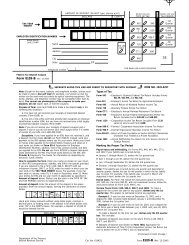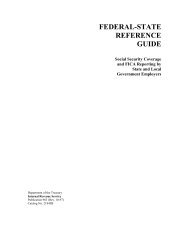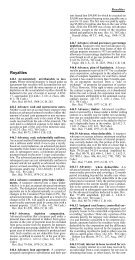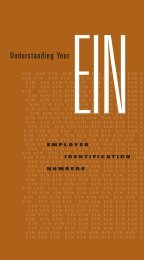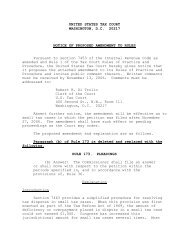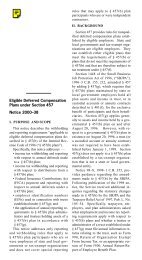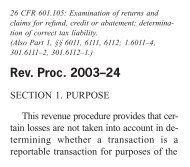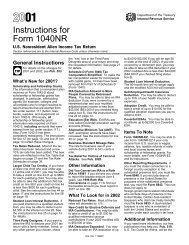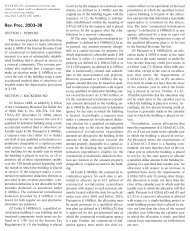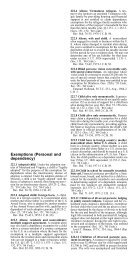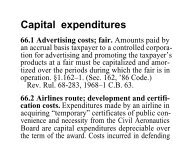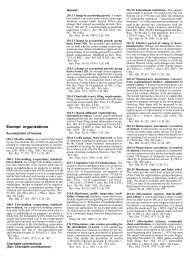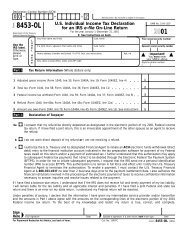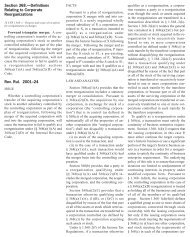Auto Dealerships - Audit Technique Guide - Uncle Fed's Tax*Board
Auto Dealerships - Audit Technique Guide - Uncle Fed's Tax*Board
Auto Dealerships - Audit Technique Guide - Uncle Fed's Tax*Board
Create successful ePaper yourself
Turn your PDF publications into a flip-book with our unique Google optimized e-Paper software.
d. Financing<br />
A Finance Receivable occurs when the dealership negotiates a customer’s loan for them.<br />
The amount of finance income is dependent on two factors: the interest rate on the<br />
contract and the market rate. The dealership may earn a commission on the market rate<br />
and the entire difference between the market rate and the rate on the contract. This should<br />
be booked to Finance Sales when the note is signed by the customer.<br />
When a dealership has a significant amount of "recourse" notes, the main financing<br />
institution will often establish a reserve which corresponds to a chargeback account on the<br />
dealership’s books (contra-asset receivable). It is recommended that these credits be<br />
reviewed to determine the correctness of any connected write-offs through a Bad Debts<br />
account. (In order to take a bad debts expense, the direct write off method must be used).<br />
See the Finance Reserves section in Chapter 19.<br />
e. Leased Car Receivables<br />
FASB Statement of Financial Accounting Standards No. 13 provides classification criteria<br />
to account for a lease as either a capital lease (sale) or as an operating lease (rental). Most<br />
dealerships involved with leasing have operating leases.<br />
Vehicles placed in the leasing business within the dealership operation should be<br />
transferred at inventory value, excluding holdback, and not recorded as vehicle sales. The<br />
vehicle remains on the books of the dealership as property leased to a lessee and is<br />
depreciated over its useful life. The dealership records the lease payments as lease<br />
income. Units retired from leasing service should be transferred to the used vehicle<br />
inventory for disposal. It is at this time that a valuation issue may exist, whether the<br />
vehicle should be transferred at its net book value or at wholesale value, less estimated<br />
reconditioning charges. Remember, for tax purposes, the adjusted basis and resulting gain<br />
or loss, and treatment of reconditioning expenses differs from how it is recorded on the<br />
books.<br />
If under the terms of the lease, the ownership risk and benefits are transferred to the<br />
lessee, the lessee has purchased the vehicle and the dealer is merely financing the purchase<br />
for the lessee. Also, vehicles sold to a separate leasing entity, independent or owned,<br />
should be recorded as sales.<br />
B-4



